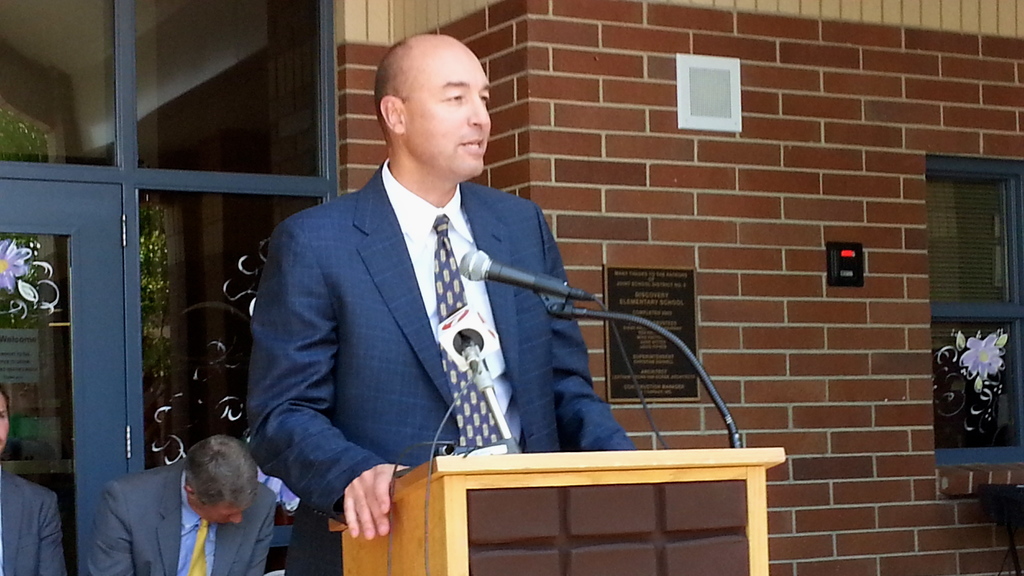Two weeks after the Education Department issued a controversial school WiFi contract, some lawmakers have questions about the details, and the state’s overall bidding process.
But those questions don’t seem too focused on the decision to award the contract to Education Networks of America — even though the company was not the low bidder. This week, Senate President Pro Tem Brent Hill and House Education Committee Chairman Reed DeMordaunt were quick to say that price is not the only measuring stick to judge a contract.

“I certainly support the concept of a decision matrix that weighs various aspects of a purchasing decision,” said DeMordaunt, R-Eagle. “If decisions were made purely on price, we would all be driving Yugos.”
The controversy came to a head on July 24, when the Education Department awarded the contract to ENA. The company will receive $2.11 million in 2013-14 — less than the $2.25 million the 2013 Legislature appropriated for the project.
But as Idaho Education News first reported on Wednesday, four of the 10 bids beat ENA on one-year and five-year costs. The low bidder on the project, Twin Falls-based Tek-Hut Inc., came in 21.9 percent below ENA’s winning bid — and the head of the company said he was perplexed by the state’s decision.

Hill, R-Rexburg, said he didn’t feel qualified to second-guess the technical committee — a team of Education Department staffers, school district IT professionals and private sector representatives — that recommended ENA.
“All I can do is state the obvious that if price were the only factor, we wouldn’t need a review committee,” Hill said. “A diverse group of nine capable people, looking at it from different perspectives, made a unanimous recommendation. I do not have their expertise and experience in this area.”
ENA is a known quantity for Hill and his legislative colleagues. Since 2009, the company has been the lead contractor on the Idaho Education Network project, which provides broadband Internet to the state’s high schools. ENA also is well-known around the Statehouse for its political presence; Hill is one of 42 sitting legislators who has received campaign contributions from the company.
Still, some legislators have questioned the multiyear contract, which runs five years and could run as long as 15 years. And they have questioned the use of one-time money — a piece of the $34 million set aside to fund ideas from Gov. Butch Otter’s education reform task force.

Jerome Republican Rep. Maxine Bell, co-chair of the budget-writing Joint Finance-Appropriations Committee, has been among the legislators questioning the decision to enter into a multiyear deal. On Friday, she said she knows it will take years to fund a much-needed effort to get WiFi into secondary schools across the state. Her concern is using one-time money to start the job.
Bell stopped short of criticizing the choice of contractor, or the selection process, saying she didn’t want to micromanage state superintendent Tom Luna’s office. “It’s a habit I’ve tried not to get into.”
But the problem, says House Minority Leader John Rusche, is that the Legislature has little or no say in the matter.

Rusche, D-Lewiston, cited a January Office of Performance Evaluations report that says statewide elected officials — as well as the legislative and judicial branches — have the ability to set up their own purchasing procedures.
“I think review and oversight is useful,” said Rusche, who says he felt blindsided by the length and the potential cost of the WiFi contract.
Meanwhile, Sen. Marv Hagedorn has been asking specific questions about the mechanics of this deal.
On Thursday, Idaho Education News blogged about the scoring system used to award the contract — particularly the scores given to bidders based on cost estimates. While one of Tek-Hut’s bids quoted a first-year cost of $1.65 million, nearly $500,000 less than the winning ENA bid, Tek-Hut outscored ENA on costs by only 33 points on a 2,500-point scale. Even Carousel Industries managed to receive 1,915 out of 2,500 points for cost — even with a steep first-year pricetag of $29.67 million.

After reading the blog, Hagedorn asked the Education Department for an explanation. The Education Department said it used a formula to grade the cost estimates, and compared its formula against two other formulas commonly used to grade bids.
On Friday, Hagedorn, R-Meridian, said he thought the department had exercised due diligence, and credited the department for checking its math against other formulas. But he said he remained “puzzled” at the narrow gap in scoring for costs — compared to a much wider gap in scores in the other two categories, technology and experience.
“I will continue to dig into that over time to make sure we are (regardless of what department does it) giving all bidders the fairest shot at the state’s business,” Hagedorn wrote on his Facebook page.
Catching up
The WiFi chronology — in 10 links:
- July 23: Lawmakers blast multiyear WiFi deal.
- July 24: Amid controversy, state superintendent Tom Luna awards WiFi contract.
- July 24: Education Networks of America’s long list of campaign contributions to Luna, Gov. Butch Otter and more than 40 sitting legislators.
- July 26: In its winning proposal, ENA touts its Idaho experience — and its political ties.
- Aug. 2: Some 200 schools likely to sign on for WiFi service.
- Aug. 2: The Boise School District explains its decision to sign on.
- Aug. 6: State downplays discrepancy in WiFi proposal.
- Aug. 7: Four bidders beat WiFi contractor’s price.
- Aug. 8: WiFi deal: How ENA got the contract.
- Aug. 8: Low bidder raises questions about WiFi decision.
